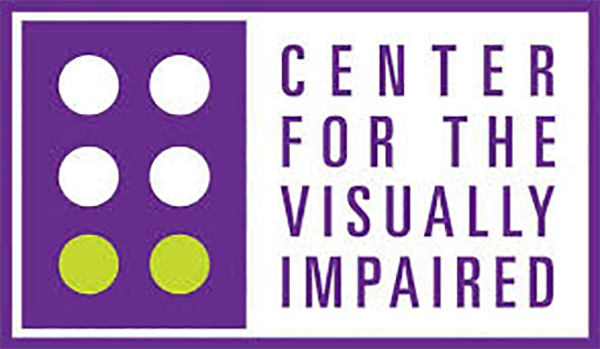Vision Loss Doesn’t Have to be a Struggle. We all know February as the month for hearts – whether for Valentine’s Day or American Heart Month. But hearts aren’t the only thing we are thinking about at the Center for the Visually Impaired (CVI). It’s also Low Vision Awareness Month!
According to the CDC, Americans age 40 and older are at greatest risk of eye disease. The major eye diseases impacting this age group are cataract, diabetic retinopathy, glaucoma, and age-related macular degeneration. The prevalence of blindness and vision impairment increases rapidly with age among all racial and ethnic groups, particularly after age 75 (Prevent Blindness America, 2002).
Vision loss can be a scary thing, but it doesn’t have to be. With the right tools and a bit of training, anyone experiencing vision loss can continue to live an active, independent life. A low vision evaluation is an important first step in addressing the challenges of vision loss. An optometrist trained in low vision conducts an exam to determine the current level of vision. Then based on that information, an occupational therapist, specializing in low vision, will help the individual set goals and make recommendations on tools and devices along with training that can make life easier to navigate.

One recommendation may be to schedule time with a vision rehabilitation professional who will teach them adaptive living skills so they can cook, clean, do their laundry and other household tasks. Additional training recommendations might include how to use the voice commands on a cell phone and orientation and mobility for navigating their environment safely.
You may have early signs of vision loss if you are having difficulty with the following activities even when wearing your glasses or contact lens:
- Recognizing the faces of family and friends
- Reading, cooking, sewing or fixing things around the house
- Selecting and matching the color of your clothes
- Seeing clearly with the lights on or feeling like they are dimmer than normal
- Reading traffic signs or the names of stores
If you are experiencing any of the above signs, give us a call at 404-875-9011 and make an appointment for a low vision exam today. CVI is here to help you adjust to vision loss, while retaining your independence. To learn more about the services available at CVI, click here.

